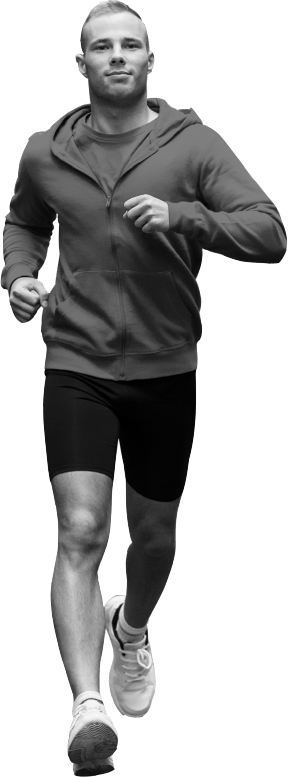What is Adult Scoliosis?
Scoliosis, a concern for residents in Baulkham Hills and the broader Hills Area, manifests as an abnormal curvature of the spine, visible in x-rays as a lateral S or C curvature. While most cases of adult scoliosis are idiopathic (unknown cause), there are identifiable causes, including untreated juvenile scoliosis which went untreated as a child, degenerative disc disease, osteoporosis which leads to subsequent bone flattening due to decreased bone integrity, cerebral palsy, poliomyelitis (polio disease), neurological disorders, or a combination of factors.
Symptoms of adult scoliosis include back pain at the site of scoliosis or distributed muscular pain over the lower back. Depending on the severity, associated pulmonary and cardiac complications may arise, highlighting the importance of timely intervention and professional evaluation.
Residents in Baulkham Hills and the Hills Area dealing with adult scoliosis can find relief through chiropractic care. A chiropractor can release stiff joints, alleviate pain, and implement a physical therapy program to strengthen muscles, correct muscular imbalances, enhance flexibility, and improve joint movement. In severe cases, operative treatment, including surgery, may be necessary.
For personalised care and effective management of adult scoliosis, Precision Health Clinics in Baulkham Hills offers expert chiropractic and massage services. If you or someone you know is experiencing adult scoliosis symptoms, reach out to our experienced chiropractic team. Contact us at (02) 9639 7337, or book online to schedule an appointment and explore tailored treatment options for adult scoliosis in the Hills Area. Our dedicated team is committed to promoting spinal health and overall well-being.
Bradford, D.S., Tay, B.K. and Hu, S.S., 1999. Adult scoliosis: surgical indications, operative management, complications, and outcomes. Spine, 24(24), p.2617.
James, J.I.P., 1970. The etiology of scoliosis. The Journal of Bone and Joint Surgery. British volume, 52(3), pp.410-419.
Machida, M., 1999. Cause of idiopathic scoliosis. Spine, 24(24), p.2576.
Book Now With Precision Health today and take the first step towards better health!
Book NowConditions Treated
Take care of your health with precision!
Precision Health Spine & Sports clinic treats a diverse range of neuromuscular and skeletal biomechanical disorders. Whether you are having trouble with your knees, you have a pain in the neck, or if you are just feeling stiff and sore, we can help you with our suite of treatment options that can be tailored especially for you. Take a look at the wide range of disorders we can help you with. Whether you need chiropractic treatment, remedial massage, physiotherapy, podiatry or a combination of disciplines, we have the expertise to decrease your pain and discomfort and increase your mobility and quality of life.
Headaches & Migraines
Shoulder Pain
Elbow Pain
- Ulnar Collateral Ligament Sprain/Strain
- Radial Head Subluxation (Nursemaid’s Elbow)
- Radial Collateral Ligament Sprain/Strain
- Posterior Impingement Syndrome
- Osteochondrosis (Panner’s Disease)
- Olecranon Bursitis (Miner's Elbow)
- Medial Epicondylitis (Golfer's Elbow)
- Little League Elbow Syndrome
- Lateral Epicondylitis (Tennis Elbow)
- Joint Hypermobility Syndrome
- Elbow Joint Dysfunction
Finger and Thumb Pain
Wrist Pain
- Wrist Tendinopathy
- Wrist Ganglions
- Ulnar Tunnel Syndrome (Guyon’s Canal Syndrome)
- Triquetrolunate Dissociation
- Triquetrohamate Instability
- Triangular Fibrocartilage Complex Injury
- Superficial Radial Nerve Compression: Causes and Symptoms
- Scapholunate Dissociation
- Scaphoid Fracture
- Radial Tunnel Syndrome
- Pronator Teres Syndrome
- Posterior Interosseous Nerve Syndrome (PINS)
- Kienbock’s Disease
- Intersection Syndrome
- Hook of Hamate Fracture
- Dorsal Impaction Syndrome
- De Quervain’s Tenosynovitis
- Cubital Tunnel Syndrome
- Carpal Tunnel Syndrome
- Anterior Interosseous Syndrome
Knee Pain
- Tibial Plateau Fractures
- Tennis Leg
- Proximal Tibial-Fibular Subluxation/Dysfunction
- Posterior Cruciate Ligament (PCL) Injury
- Popliteus Tendinitis
- Pes Anserine Bursitis/Tendinitis
- Patellofemoral Pain Syndrome (Runner’s Knee)
- Patellofemoral Arthralgia (Chondromalacia Patellae)
- Patellar Tendinitis (Jumper’s Knee)
- Patellar Dislocation and Subluxation
- Osteochondritis Dissecans (OCD) of the Knee Joint
- Osteoarthritis of the Knee Joint
- Osgood-Schlatter Disease
- Meniscus Injuries to the Knee
- Medial Collateral Ligament (MCL) Injury
- Lateral Collateral Ligament (LCL) Injury
- Knee Joint Dysfunction
- Iliotibial Band Syndrome
- Anterior Cruciate Ligament (ACL) Injury
Head And Neck Pain
- Whiplash Injury (Hyperflexion/Hyperextension Injury)
- Torticollis (Wry Neck)
- Thoracic Outlet Syndrome
- Temporomandibular Joint Dysfunction (TMJ Disorder)
- Herniated Cervical Disc
- Cervical Spondylosis
- Cervical Spine Sprain/Strain
- Cervical Segmental Joint Dysfunction
- Cervical Radiculopathy
- Cervical Facet Syndrome
Back Pain
- Transient-Structural Scoliosis (Sciatic Scoliosis)
- Thoracic Segmental Joint Dysfunction
- T4 Syndrome (Upper Thoracic Syndrome)
- Structural Scoliosis (Idiopathic Scoliosis)
- Shingles (Herpes Zoster Virus)
- Scheuermann’s Disease
- Non-Structural Scoliosis (Postural Scoliosis)
- Kyphosis
- Juvenile Scoliosis
- Infantile Scoliosis
- Compression Fracture
- Adult Scoliosis
Lower Back Pain
- Spondylolisthesis
- Sacroiliac Joint Dysfunction
- Sacroiliac Injury
- Reactive Arthritis (Reiter’s Syndrome)
- Mechanical Low Back Pain
- Lumbosacral Injury
- Lumbar Spondylolysis
- Lumbar Spinal Stenosis (Lumbar Canal Stenosis)
- Lumbar Segmental Joint Dysfunction
- Lumbar Facet Syndrome
- Lumbar Disc Herniation
- Ankylosing Spondylitis
- Abdominal Aortic Aneurysm
Hip, Groin and Thigh Pain
- Trochanteric Pain Syndrome
- Trochanteric Bursitis
- Traumatic Hip Dislocations
- Transient Synovitis
- Stress Fractures (Neck of Femur Fracture)
- Snapping Hip Syndrome
- Slipped Capital Epiphysis (Adolescent Coxa Vara)
- Rheumatoid Arthritis of the Hip Joint
- Quadriceps Muscle Strain/Quadriceps Muscle Tear
- Paget’s Disease
- Osteoarthritis of the Hip Joint
- Osteitis Pubis
- Muscle Contusions/Myositis Ossificans
- Meralgia Paresthetica
- Leg-Calve-Perthe’s Disease (Avascular Necrosis of the Hip)
- Ischial Bursitis
- Iliopectineal Bursitis and Iliopsoas Bursitis
- Hip Fractures
- Hamstring Muscle Injury
- Femoroacetabular Impingement
- Congenital Hip Dislocation (Congenital Hip Dysplasia)
- Adductor Muscle Injury
- Acetabular Labrum Tears




















